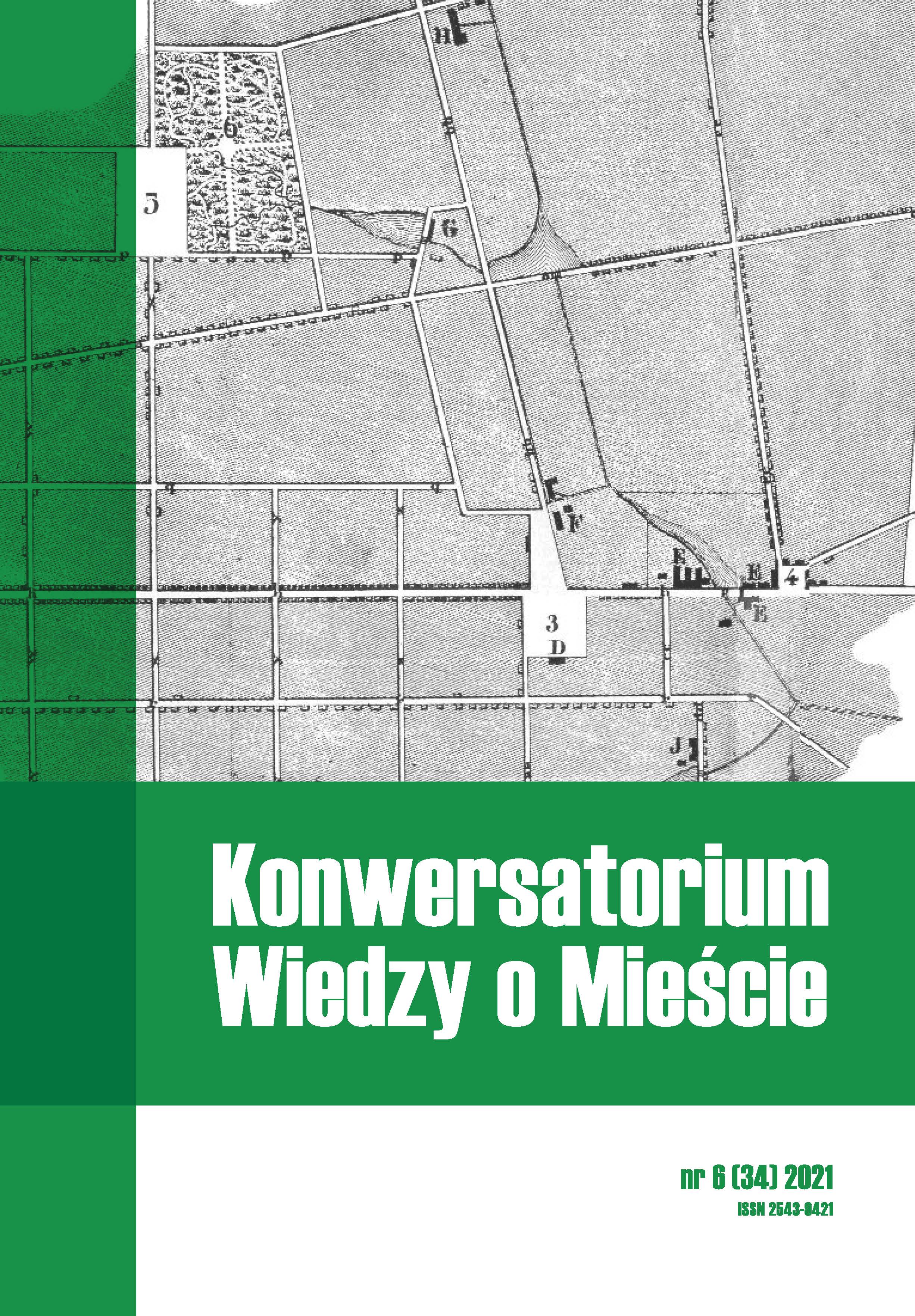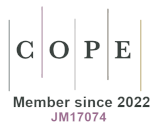Forms and distribution of events for outdoor creative recreation in Łódź
DOI:
https://doi.org/10.18778/2543-9421.06.13Keywords:
creative recreation, urban recreational space, outdoor recreation, ŁódźAbstract
The aim of the article is to describe the phenomenon and distribution of outdoor creative recreation in the recreational space of Łódź. The concept of creative recreation has been redefined, combining the geography of tourism and recreational geography with psycho-pedagogical theories about creativity. Using the operational definition an investigation was conducted, narrowed down to an analysis of events of outdoor creative recreation in Łódź in 2019. On its basis, its spatial distribution was analyzed. Thanks to the analysis, it was shown most commonly the nature of events was related to cultural and entertainment activities, taking place during the summer season, and were often cyclical and free of charge. Moreover, as part of the distribution analysis, it was indicated that the analyzed events were organized predominantly in green and post-industrial areas and the city center dominated. Other important locational factors of these events were also indicated. Its characteristics and the distribution of outdoor creative recreation are in line with research on the quality of urban recreational space which will translate into a better quality of life for residents. The example of Łódź, a city entered into the UNESCO Creative Cities Network, allows for a discussion on the importance of the organization of urban recreational space for the development of modern cities.
References
ASM – Centrum Badań i Analiz Rynku Sp. z o.o. (2014). Potencjały przemysłów kreatywnych w Łódzkim Obszarze Metropolitalnym. Pobrane z: https://docplayer.pl/6643939-Potencjaly-przemyslow-kreatywnych-w-lodzkim-obszarze-metropolitalnym-czerwiec-2014.html (5.01.2022).
Google Scholar
Bończak, B. (2013). Aktywne formy turystyki – problemy terminologiczne. Warsztaty z Geografii Turyzmu, 3, 49–62. https://doi.org/10.18778/7525-925-4.05
Google Scholar
DOI: https://doi.org/10.18778/7525-925-4.05
Bujacz, A. (2011). Trening twórczości w projektowaniu przestrzennym. W: W. Paluchowski, M. Stańko-Kaczmarek (red.), Między psychologią a sztuką. Poznań: Wydawnictwo Naukowe Wydziału Nauk Społecznych UAM. Pobrane z: https://www.researchgate.net/publication/257536980_Trening_tworczosci_w_projektowaniu_przestrzennym_Creativity_training_in_space_design (10.04.2021).
Google Scholar
Cichociński, P. (2014). Problematyka geokodowania zdarzeń drogowych. Roczniki Geomatyki, 12 (2/64), 205–216.
Google Scholar
Coalter, F. (1997). Leisure sciences and leisure studies: Different concept, same crisis? Leisure Sciences, 19 (4), 255–268. https://doi.org/10.1080/01490409709512254
Google Scholar
DOI: https://doi.org/10.1080/01490409709512254
Creek, J. (2008). Creative leisure opportunities. NeuroRehabilitation, 23 (4), 299–304. https://doi.org/10.3233/NRE-2008-23402
Google Scholar
DOI: https://doi.org/10.3233/NRE-2008-23402
Czajkowski, K. (1979). Wychowanie do rekreacji. Warszawa: Wydawnictwa Szkolne i Pedagogiczne.
Google Scholar
Demel, M., Humen, W. (1970). Wprowadzenie do rekreacji fizycznej. Warszawa: Sport i Turystyka.
Google Scholar
Elisondo, R.C., Vargas, A. (2019). Women’s everyday creative activities: A qualitative study. Creativity. Theories – Research – Applications, 6 (1), 91–111. https://doi.org/10.1515/ctra-2019-0006
Google Scholar
DOI: https://doi.org/10.1515/ctra-2019-0006
Florida, R. (2009). Brief for Poland. Pobrane z: https://www.creativeclass.com/rfcgdb/articles/Brief_116_B4P.pdf (5.01.2021).
Google Scholar
Geokodowanie i geowyszukiwanie (2018). Pobrane z: https://enterprise.arcgis.com/pl/portal/latest/use/geocode.htm (19.12.2018).
Google Scholar
Hegarty, C.B. (2009). The value and meaning of creative leisure. Psychology of Aesthetics, Creativity, and the Arts, 3 (1), 10–13. https://doi.org/10.1037/a0014879
Google Scholar
DOI: https://doi.org/10.1037/a0014879
Henderson, K.A., Presley, J., Bialeschki, M.D. (2004). Theory in recreation and leisure research: Reflections from the editors. Leisure Sciences, 26 (4), 411–425. https://doi.org/10.1080/01490400490502471
Google Scholar
DOI: https://doi.org/10.1080/01490400490502471
Hindley, D. (2018). “More than just a run in the park”: An exploration of parkrun as a shared leisure space. Leisure Sciences, 0400, 1–21. https://doi.org/10.1080/01490400.2017.1410741
Google Scholar
DOI: https://doi.org/10.1080/01490400.2017.1410741
Ilczuk, D. (2021). Przemysły kultury. Pobrane z: https://nck.pl/upload/2011-01-27/prezentacja_przemysly_kultury.pdf (14.02.2021).
Google Scholar
Johnson, A.J., Glover, T.D. (2013). Understanding urban public space in a leisure context. Leisure Sciences, 35 (2), 190–197. https://doi.org/10.1080/01490400.2013.761922
Google Scholar
DOI: https://doi.org/10.1080/01490400.2013.761922
Kaczmarek, S. (2001). Rewitalizacja terenów poprzemysłowych. Nowy wymiar w rozwoju miast. Łódź: Wydawnictwo Uniwersytetu Łódzkiego.
Google Scholar
Kalendarz wydarzeń – Urząd Miasta Łodzi (2021). Pobrane z: https://uml.lodz.pl/kalendarz-wydarzen/ (30.12.2021).
Google Scholar
Kiełbasiewicz-Drozdowska, I. (2001). Teoria i metodyka rekreacji. Poznań: Wydawnictwo AWF.
Google Scholar
Kwilecka, M., Brożek, Z. (2007). Bezpośrednie funkcje rekreacji. Warszawa: ALMAMER Wyższa Szkoła Ekonomiczna.
Google Scholar
Landry, Ch. (2013). Kreatywne miasto: zestaw narzędzi dla miejskich innowatorów. Warszawa: Narodowe Centrum Kultury.
Google Scholar
Łódź Miastem Filmu UNESCO! (2017). Urząd Miasta Łodzi. Pobrane z: https://uml.lodz.pl/aktualnosci/artykul/lodz-miastem-filmu-unesco-id16188/2017/11/2/ (28.12.2017).
Google Scholar
Łódź Miasto Filmu UNESCO (2021). Pobrane z: https://lodzcityoffilm.com/ (30.12.2021).
Google Scholar
Łódź na Kongresie Miast Kreatywnych (2017). EC1 Łódź. Pobrane z: https://ec1lodz.pl/aktualnosci/lodz-na-kongresie-miast-kreatywnych (28.12.2017).
Google Scholar
Merchant, S. (2017). The promise of creative/participatory mapping practices for sport and leisure research. Leisure Studies, 36 (2), 182–191. https://doi.org/10.1080/02614367.2016.1231830
Google Scholar
DOI: https://doi.org/10.1080/02614367.2016.1231830
Mokras-Grabowska, J. (2014). Przestrzeń turystyczno-artystyczna Łodzi na przykładzie Galerii Urban Forms. Turyzm/Tourism, 24 (2), 25–33. https://doi.org/10.2478/tour-2014-0013
Google Scholar
DOI: https://doi.org/10.2478/tour-2014-0013
Mokras-Grabowska, J. (2018). New urban recreational spaces. Attractiveness, infrastructure arrangements, identity. The example of the city of Łódź. Miscellanea Geographica, 22 (4), 219–224. https://doi.org/10.2478/mgrsd-2018-0017
Google Scholar
DOI: https://doi.org/10.2478/mgrsd-2018-0017
Mokras-Grabowska, J. (2019). Recreational space – forms, transformations and innovative trends in development. Geography and Tourism, 7 (1), 7–16. https://doi.org/10.36122/GAT20190701
Google Scholar
Mroczek-Żulicka, A. (2015). Łódź jako przestrzeń sprzyjająca twórczości. W: E. Woźnicka, K. Witerska, L. Kuras (red.), Konceptualizacja profesjonalizacji kreatywności (s. 135–152). Łódź: Akademia Humanistyczno-Ekonomiczna.
Google Scholar
Mroczek-Żulicka, A. (2018). Twórcza rekreacja a twórcze podejście do organizacji rekreacji – studium przypadku Zakładów Przemysłów Twórczych Wi-Ma w Łodzi. Turyzm/Tourism, 28 (1), 81–92. https://doi.org/10.18778/0867-5856.28.1.07
Google Scholar
DOI: https://doi.org/10.18778/0867-5856.28.1.07
Napierała, M., Muszkieta, R. (2011). Wstęp do teorii rekreacji. Bydgoszcz: Wydawnictwo Uniwersytetu Kazimierza Wielkiego.
Google Scholar
Navarro, R.T., Tschöke Santana, D., Rechia, S. (2018). Public leisure space and community-based action. Leisure Studies, 37 (6), 747–762. https://doi.org/10.1080/02614367.2018.1535613
Google Scholar
DOI: https://doi.org/10.1080/02614367.2018.1535613
Oh, S.-S., Caldwell, L.L., Oh, S.-Y. (2001). An examination of leisure constraints, participation in creative activities and hobbies, and leisure boredom in a sample of Korean adults. World Leisure Journal, 43 (2), 30–38. https://doi.org/10.1080/04419057.2001.9674228
Google Scholar
DOI: https://doi.org/10.1080/04419057.2001.9674228
Olbińska, K. (2014). Wartość miejskiej przestrzeni publicznej. W: M. Madurowicz (red.), Kształtowanie współczesnej przestrzeni miejskiej (s. 350–361). Warszawa: Wydawnictwa Uniwersytetu Warszawskiego.
Google Scholar
Parry, D.C., Johnson, C.W. (2007). Contextualizing leisure research to encompass complexity in lived leisure experience: The need for creative analytic practice. Leisure Sciences, 29 (2), 119–130. https://doi.org/10.1080/01490400601160721
Google Scholar
DOI: https://doi.org/10.1080/01490400601160721
Pawlikowska-Piechotka, A. (2009). Zagospodarowanie turystyczne i rekreacyjne. Gdynia: Novae Res.
Google Scholar
Plaster Łódzki (2017). Pobrane z: https://plasterlodzki.pl/o-nas/ (28.12.2017).
Google Scholar
Pożycka, P. (2012). Łódź – miasto kreatywne. Badanie potencjału kreatywnego Łodzi na tle wybranych miast Polski. Łódź: Katedra Gospodarki Regionalnej i Środowiska, Wydział Ekonomiczno-Socjologiczny, Uniwersytet Łódzki.
Google Scholar
Rewitalizacja (2018). Urząd Miasta Łodzi. Pobrane z: https://rewitalizacja.uml.lodz.pl/ (2.12.2018).
Google Scholar
Rewitalizacja. Stary Rynek (2021). Urząd Miasta Łodzi. Pobrane z: https://rewitalizacja.uml.lodz.pl/dzialania/4-okolice-placu-wolnosci-i-starego-rynku/stary-rynek/ (26.08.2021).
Google Scholar
Richards, G. (2014). Creativity and tourism in the city. Current Issues in Tourism, 17 (2), 119–144. https://doi.org/10.1080/13683500.2013.783794
Google Scholar
DOI: https://doi.org/10.1080/13683500.2013.783794
Rojek, C. (1997). Leisure theory: Retrospect and prospect. Loisir et Société/Society and Leisure, 20 (2), 383–400. https://doi.org/10.1080/07053436.1997.10715549
Google Scholar
DOI: https://doi.org/10.1080/07053436.1997.10715549
Salerno, A. (2009). Consumer creative experience: The role of motivational orientation in creative leisure activity. Recherche et Applications en Marketing, 24 (1), 69–91. https://doi.org/10.1177/205157070902400105
Google Scholar
DOI: https://doi.org/10.1177/205157070902400105
Siwiński, W., Pluta, B. (red.) (2010). Teoria i metodyka rekreacji. Poznań: Akademia Wychowania Fizycznego im. Eugeniusza Piaseckiego.
Google Scholar
Stevenson, D. (2006). The arts and entertainment: Situating leisure in the creative economy. W: C. Rojek, S.M. Shaw, J. Veal (red.), A handbook of leisure studies (s. 354–362). London: Palgrave Macmillan. https://doi.org/10.1057/9780230625181_21
Google Scholar
DOI: https://doi.org/10.1057/9780230625181_21
Stryjakiewicz, T. (2010). Krajobraz antropogeniczny, przestrzenie kreatywne a turystyka. Krajobraz a Turystyka. Prace Komisji Krajobrazu Kulturowego, 14, 52–62.
Google Scholar
Szczech, E. (2014). Is there a creative city in Poland? Defining and measuring the concept in Poland. Prace Naukowe Uniwersytetu Ekonomicznego we Wrocławiu, 334, 242–251. https://doi.org/10.15611/pn.2014.334.23
Google Scholar
DOI: https://doi.org/10.15611/pn.2014.334.23
Tanaś, S., Jakóbczyk-Gryszkiewicz, J., Dyba, W., Marcińczak, S. (2008). Zagospodarowanie terenów rekreacyjnych w Łodzi. Plany i perspektywy. Łódź: Łódzkie Towarzystwo Naukowe.
Google Scholar
Törnqvist, G. (2004). Creativity in time and space. Geografiska Annaler. Series B: Human Geography, 86 (4), 227–243. https://doi.org/10.1111/j.0435-3684.2004.00165.x
Google Scholar
DOI: https://doi.org/10.1111/j.0435-3684.2004.00165.x
Trnka, R., Zahradnik, M., Kuška, M. (2016). Emotional creativity and real-life involvement in different types of creative leisure activities. Creativity Research Journal, 28 (3), 348–356. https://doi.org/10.1080/10400419.2016.1195653
Google Scholar
DOI: https://doi.org/10.1080/10400419.2016.1195653
Urząd Miasta Łodzi (2021a). Czym jest sektor kreatywny? Pobrane z: https://uml.lodz.pl/dla-biznesu/przemysly-kreatywne/czym-jest-sektor-kreatywny/ (14.12.2021).
Google Scholar
Urząd Miasta Łodzi (2021b). Pobrane z: https://uml.lodz.pl/ (12.10.2021).
Google Scholar
Wall, K. (2012). The gallery and the inukshuk: Everyday creativity and cultural production as leisure practices. Leisure/Loisir, 36 (1), 17–35. https://doi.org/10.1080/14927713.2012.701880
Google Scholar
DOI: https://doi.org/10.1080/14927713.2012.701880
Wantuch-Matla, D. (2016). Przestrzeń publiczna 2.0. Miasto u progu XXI wieku. Łódź: Księży Młyn Dom Wydawniczy.
Google Scholar
Whiting, J., Hannam, K. (2015). Creativity, self-expression and leisure. Leisure Studies, 34 (3), 372–384. https://doi.org/10.1080/02614367.2014.923494
Google Scholar
DOI: https://doi.org/10.1080/02614367.2014.923494
Winiarski, R. (red.) (2011). Rekreacja i czas wolny. Kraków: Oficyna Wydawnicza Łośgraf.
Google Scholar
Włodarczyk, B. (2012). Nowe przestrzenie turystyczne i rekreacyjne w latach 2005–2010. W: S. Liszewski (red.), Atlas miasta Łodzi (Suplement 2) (plansza XLVI). Łódź: Urząd Miasta Łodzi – Łódzki Ośrodek Geodezyjny. Pobrane z: http://www.mapa.lodz.pl/index.php?strona=atlas#2012 (23.11.2021).
Google Scholar
Wojnar, K. (2016). Polska klasa kreatywna. Warszawa: Narodowe Centrum Kultury.
Google Scholar
Wojnarowska, A. (2017). Jakość przestrzeni publicznej centrum miasta. Przykład miast średnich regionu łódzkiego. Łódź: Wydawnictwo Uniwersytetu Łódzkiego.
Google Scholar
DOI: https://doi.org/10.21858/msr.21.03
Wolańska, T. (1971). Rekreacja fizyczna. Warszawa: Centralny Ośrodek Metodyki Upowszechniania Kultury.
Google Scholar
Wolańska, T. (1997). Leksykon. Sport dla wszystkich – rekreacja ruchowa. Warszawa: Wydawnictwo AWF.
Google Scholar
Yuen, F., Johnson, A.J. (2017). Leisure spaces, community and third places. Leisure Sciences, 39 (3), 295–303. https://doi.org/10.1080/01490400.2016.1165638
Google Scholar
DOI: https://doi.org/10.1080/01490400.2016.1165638
Downloads
Published
How to Cite
Issue
Section
License

This work is licensed under a Creative Commons Attribution-NonCommercial-NoDerivatives 4.0 International License.









